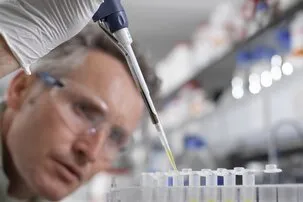A biochemist is a scientist who studies the chemical processes and substances that occur within living organisms. They use their knowledge of chemistry, biology, and other related fields to understand the complex chemical reactions and interactions that take place within cells and organisms. Biochemists are interested in understanding the molecular mechanisms that underlie biological processes such as metabolism, growth, reproduction, and disease.
Biochemists often work in laboratories, where they conduct experiments and analyze data to better understand the chemical processes that occur within living organisms. They may use a wide range of techniques and tools, such as chromatography, spectroscopy, and genetic engineering, to study the structure and function of biological molecules such as proteins, nucleic acids, and carbohydrates.
In addition to conducting research, biochemists may also be involved in developing new drugs, diagnostic tests, and other medical treatments. They may work closely with other scientists and healthcare professionals to understand the biochemical basis of diseases and to develop new therapies to treat them.
Biochemists may also work in industry, where they may be involved in developing new products or processes, such as new food additives, biofuels, or industrial enzymes. They may also work in agriculture, where they may be involved in developing new crop varieties or improving the nutritional content of foods.
Overall, biochemists play a crucial role in advancing our understanding of the chemical processes that occur within living organisms, and their work has important implications for medicine, agriculture, and industry.

